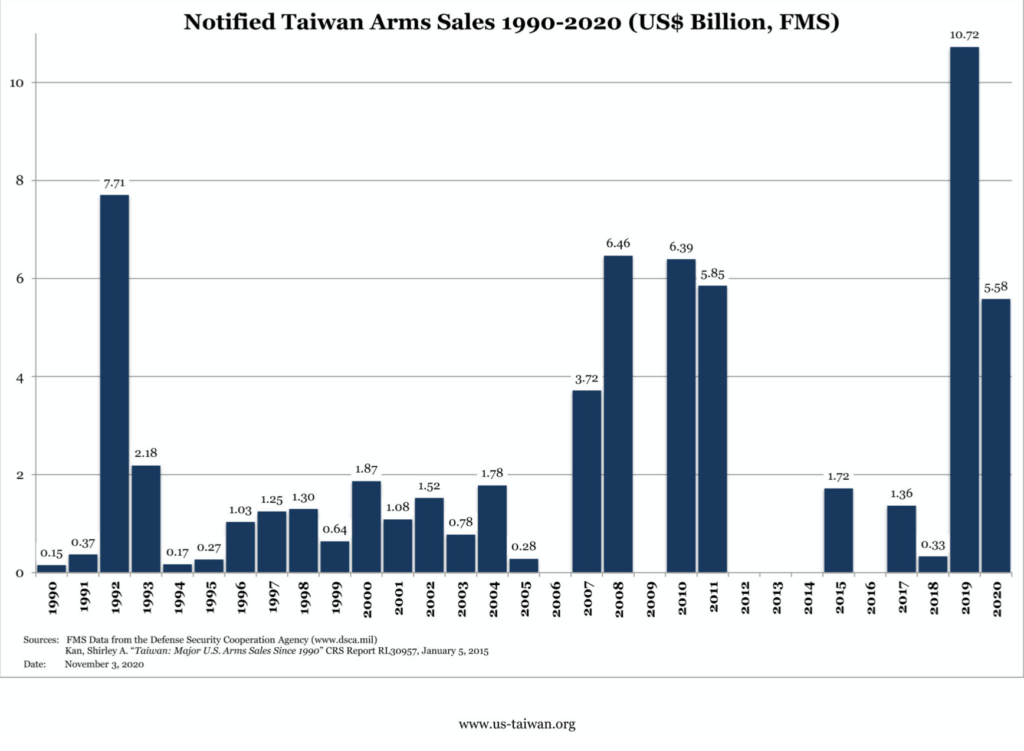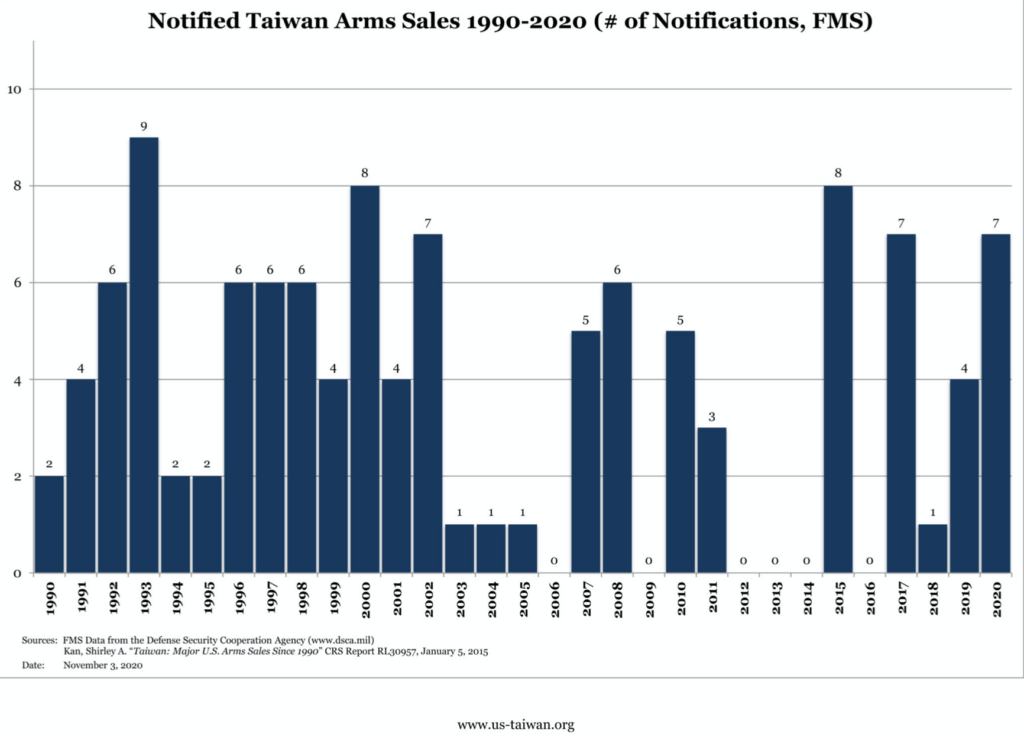Recent Espionage Cases Highlight Taiwan’s Counterintelligence Woes
In a quiet escalation of tensions in the Taiwan Strait over recent months, Taiwanese authorities in late October brought in three former officers from Taiwan’s Military Intelligence Bureau (MIB, 軍情局)—the equivalent of the US Defense Intelligence Agency (DIA)—for questioning. Investigators there believe that the three retired intelligence professionals have been engaged in espionage activities on behalf of China’s security services. These allegations by Taiwanese officials responsible for counterintelligence represent the latest in a string of cases—mostly involving junior officers over the past decade afflicting the MIB—that seem to underscore the growing woes of Taiwanese efforts to counter China’s incessant espionage operations and attempts to penetrate the island’s security apparatuses. The recent case involving the three retired officers from the island’s reclusive military intelligence agency sent a shockwave through the Taiwanese security community, as investigators alleged that the retired senior operators and analysts may have passed confidential information to China’s security services.
In the span of several days in late October, Taiwanese investigators brought in Major General (ret.) Yueh Chih-chung (岳志忠), Colonel (ret.) Chang Chao-jan (張超然), and Colonel (ret.) Chou Tien-tzu (周天慈), who were suspected of spying on behalf of the PRC. The three officers—who are all now in their 70s—were all formerly members of the MIB’s Fifth Division (軍情局第五處). This division is responsible for scientific and technological intelligence, covert intelligence, and intelligence briefings that are provided to senior government officials to assist with making national security decisions. In addition to providing intelligence to the Ministry of National Defense, the MIB occasionally provides intelligence analysis reports to other government agencies—ostensibly making the chance for leaks less given the fewer number of clients and thus making MIB a prime infiltration target for the Chinese Communist Party (CCP).
Among the three retired MIB officers, the most senior-ranking is Yueh, who was formerly a director of the Fifth Division and was reportedly among the first batch of covert operatives dispatched to Beijing following the opening of cross-Strait exchanges. He also served as station chief in Hong Kong for the MIB. After retirement, Yueh has served as a vice chairman of the ROC Loyal Comrade Association (中華民國忠義同志會)—a civic association founded and largely comprised of former officers from the MIB. Among the three, the most serious case seems to be Chang, who was denied bail by the judge upon the prosecutors’ request due to concerns that he could be a flight risk. Taiwanese investigators alleged that Chang had participated in monthly gatherings with retired MIB officers in an effort to identify and recruit others to spy on behalf of the PRC. Prosecutors also claimed that Chang and Chou have been making trips to China since 2013. Further, they are alleged to have lured Yueh with trips to China between 2016-18, where he purportedly met with members of China’s security services and may have leaked confidential information at the behest of Chang.
Given the role of the MIB and its precursors as the intelligence arm of the military during the civil war, the MIB has long been a prime Chinese intelligence target. As Captain (ret.) Bernard D. Cole noted in his seminal book on Taiwan’s security apparatuses, “Taiwan’s Security: History and Prospects (Asian Security Studies)”:
The Military Intelligence Bureau (MIB) comes with a very checkered historical background, descending from units organized during the earliest days of the revolution, heavily politicized, and completely controlled by the KMT. Today’s MIB is responsible for signals intelligence, reportedly cooperating with US intelligence agencies. The Bureau also conducts human intelligence-gathering and is an organ of Taiwan’s national intelligence structure. It can no longer depend on a powerful political officer system, embedded in an officer corps belonging to the KMT, but almost certainly retains a strong KMT coloration. [1]
Prior to Yueh, Chang, and Chou, the most recent and perhaps serious of known instances of an MIB officer having been recruited by China to conduct espionage was the case of Major Wang Tsung-wu (王宗武) in 2016. Wang, who was still in active service when he was recruited, had been sent undercover to China reportedly on four separate occasions over the years 1992-1994. However, it was later revealed that he had been recruited by China’s security services and became a double agent, subsequently spying for the PRC for more than 10 years. During this period, Wang was suspected of having received around USD $100,000 in payments from China’s security services, in addition to other in-kind favors. Wang allegedly recruited another former intelligence officer at the MIB and transferred sensitive intelligence to the other side.
While the potential recruitment of intelligence professionals, serving or retired, are serious matters that merit their own categories of concerns, these cases also serve to highlight the broader counterintelligence woes of Taiwan. In 2018, Taipei revealed that it had uncovered 52 Chinese espionage cases involving 174 individuals in that year alone. According to the country’s Ministry of Justice Investigation Bureau (MJIB, 法務部調查局)—one of three main intelligence services in Taiwan—Chinese spies are using exchange activities as a cover to collect intelligence, infiltrate, and recruit members to develop spy rings on the island. To put the recent figure into perspective, “between 2002 and 2016, 56 individuals have been charged in Taiwan as clandestine agents of the MSS or PLA.”
While it is reasonable to presume that the number of identified cases could reflect in part Taiwan’s increased capability to detect potential cases of intelligence breaches, it is still troubling to see the growing number of intelligence professionals—retired or otherwise—who are being lured by China to spy on its behalf, presumably for financial and other reasons. Taiwan is not alone in having to deal with these threats. In fact, these cases in Taiwan also dovetail with a number of high-profile cases involving retired US intelligence professionals who have been apprehended for stealing secrets on behalf of the PRC.
The disclosure from Taiwan follows three consecutive days of a high-profile feature on Chinese state-run television, wherein authorities there broadcasted the confessions by alleged Taiwanese spies accused of spying by China in a campaign dubbed Xunlei-2020 (迅雷-2020). While claims of espionage are nothing new in cross-Strait relations, these cases have shone an undesired but perhaps necessary spotlight on the MIB. Furthermore, these cases are appearing as tensions between the Taiwan and China are ratcheting up, with observers arguing that military tensions are at perhaps their highest point since the 1995-96 missile crisis.
In reference to the case involving the three senior intelligence officers, Gu Kung-chien (顧功鍵), a reserve colonel and formerly a director at an intelligence college run by the MIB, told the local media: “Our [Taiwan’s] intelligence collection budget is limited; on the other hand, the mainland’s intelligence collection budget is relatively abundant, making it more difficult for operations.”
The main point: Recent cases involving China’s recruitment of retired intelligence officers in Taiwan have sent shockwaves throughout the island’s security community, underscoring the need for reform and additional resources.
[1] Cole, B. D. (2008). Taiwan’s Security: History and Prospects. London: Routledge.
US Authorizes Record Amount of Arms Sales to Taiwan as Tensions Mount
As China ramps up its military coercion of Taiwan with almost daily intrusions into the island’s airspace—including 20 such intrusions just in November—the US top diplomat in Taiwan Brent Christensen publicly held up the country as one of America’s top security partners in the world. Speaking in terms of US arms sales to the island democracy, Taiwan was America’s top arms sales recipient in Asia and second only to US treaty ally Japan in 2020. According to data compiled by the US-Taiwan Business Council (USTBC)—which tracks the amount and number of notified arms sales to Taiwan—the US government notified more in arms sales to Taiwan by measure of amount in 2019 than in any previous year in the past three decades.
The amount of arms sales approved for Taiwan under the Trump administration has been unprecedented. Since the beginning of the Trump administration in 2017, the United States has issued 19 notifications to Congress of arms sales to Taiwan, for a total amount of USD $17.99 billion. This represents a significant increase from the Obama administration, which issued only 16 notifications from when it took office in 2009 through 2016 for a total amount of USD $13.96 billion.


According to Christensen, the director of the American Institute in Taiwan (AIT)—the de facto US embassy in Taiwan—these sales are consistent with longstanding US policy. Referencing the declassification of previously classified memorandums related to Taiwan, Christensen alluded to the Six Assurances to Taiwan as justification for continued US arms sales to Taiwan, adding that these arms sales were critical for Taiwan’s defense as well as for augmenting the island’s asymmetric warfare capabilities.
In addition to the aforementioned memos, the US National Security Council (NSC) released a significant declassified memo in September 2019. The document, written by President Ronald Reagan in 1982, emphasized that any reduction in arms sales to Taiwan would be premised on peace in the Taiwan Strait and China’s declared “fundamental policy” of a peaceful resolution to the question of Taiwan. Reagan added that “the US willingness to reduce its arms sales to Taiwan is conditioned absolutely upon the continued commitment of China to the peaceful solution of the Taiwan-PRC differences. It should be clearly understood that the linkage between these two matters is a permanent imperative of US foreign policy.” “It is essential that the quantity and quality of the arms provided Taiwan be conditioned entirely on the threat posed by the PRC. Both in quantitative and qualitative terms, Taiwan’s defense capability relative to that of the PRC will be maintained,” Reagan emphasized.
As noted by GTI Advisor Shirley Kan:
The NSC’s release of this memo is overdue and puts the guidance in the unclassified, official record for Congress in its oversight and other actions. […] The memo enables consistency in policy rather than Presidential whims affecting arms sales. Finally, the memo enhances strategic communication that counters China’s constant false narratives about the United States, Taiwan, and other countries.
In late August of 2020, the United States again declassified two additional sets of diplomatic communications from 1982 relating to Taiwan arms sales, as well as Washington’s “Six Assurances” to Taiwan. Publicly announcing the declassification of those memos, Assistant Secretary for East Asian and Pacific Affairs David Stilwell stated: “It is important to review history like this because Beijing has a habit of distorting it.”
According to Voice of America, “experts have argued that even though the United States is not setting new precedents in its relationship with Taiwan, the reassurances communicated by declassifying the 1982 cables seem new. ‘They rarely mentioned the Six Assurances publicly,’ said Bonnie Glaser, director of the China Power Project at the Center for Strategic and International Studies in Washington, ‘so this is an effort to elevate their importance.’”
The main point: The United States approved more arms sales to Taiwan in 2019 in terms of dollar amount than in any previous years as China ramps up military coercion of Taiwan.


